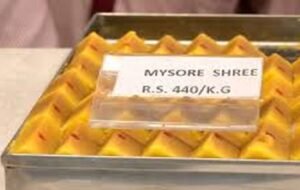
Why in News?
- On April 25, 2025, in retaliation to the terror attack in Pahalgam that killed 26 Indian tourists, India declared that:
- The Indus Waters Treaty (IWT) of 1960 would be held “in abeyance”.
- It may also consider holding the Simla Agreement in abeyance as part of broader diplomatic retaliation against Pakistan.
- Pakistan responded by stating it would also consider holding all bilateral agreements with India in abeyance, including the Simla Agreement.
Introduction to the Issue
India has invoked a rarely used diplomatic tool — suspension without termination, or abeyance — to express its displeasure over cross-border terrorism and Pakistan’s perceived lack of good faith in fulfilling treaty obligations. This diplomatic stance affects two significant international agreements:
- Indus Waters Treaty (IWT), 1960
- Simla Agreement, 1972
Both agreements are foundational to India-Pakistan water sharing and peace processes, respectively. Their suspension has legal, strategic, and geopolitical implications that merit attention from legal aspirants.
What Does ‘In Abeyance’ Mean?
- Definition: “In abeyance” refers to a temporary suspension or withholding of a treaty or agreement without terminating it.
- It does not cancel the agreement but renders its obligations non-binding temporarily.
- This move is not codified under formal international treaty law but is practiced in diplomacy as a political signal of protest or pressure.
- Indus Waters Treaty (IWT) in Abeyance
Legal Background:
- The IWT governs the distribution of water from the Indus and its tributaries between India and Pakistan.
- The treaty was signed in 1960, with the World Bank as a guarantor.
- Under Article XII, the treaty can only be modified or terminated through mutual agreement between both governments.
🇮🇳 India’s Position:
- India has cited a “fundamental change in circumstances” — a clause recognized in international treaty law (Article 62 of the Vienna Convention on the Law of Treaties, VCLT).
- The Jal Shakti Ministry’s letter to Pakistan claims:
- Altered population demographics
- Energy needs and climate change
- Pakistan’s continued support for terrorism
- Failure to act in good faith
- India maintains that terrorism undermines trust, making the IWT untenable in its current form.
🇵🇰 Pakistan’s Reaction:
- Pakistan stated that if India holds the IWT in abeyance, it will consider doing the same for all bilateral treaties, including the Simla Agreement.
- Pakistan may attempt to trigger dispute resolution mechanisms built into the treaty.
III. Legal Framework: Vienna Convention and ICJ Precedents
Vienna Convention on the Law of Treaties (VCLT), 1969:
- Governs the termination, suspension, or modification of treaties.
- Article 62 provides for termination/suspension based on “fundamental change of circumstances”.
- But these circumstances must:
- Be unforeseen
- Substantially alter the obligations
- Be internal to the treaty (i.e., within its scope)
ICJ Rulings – High Bar for Suspension:
- In Nicaragua v. United States (1984):
- Nicaragua argued for a treaty suspension citing external political changes (U.S. support for Contra rebels).
- ICJ rejected the claim, stating the change must relate to the treaty’s subject matter.
- In Gabčíkovo–Nagymaros Project (1997):
- ICJ ruled that a dam dispute between Hungary and Slovakia must be resolved within treaty mechanisms, not via unilateral acts.
Simla Agreement: Legal Status and Strategic Importance
Key Provisions of the 1972 Simla Agreement:
- Signed after the Indo-Pak war of 1971, it aimed to establish peaceful bilateral relations.
- Two critical provisions:
- Resolve issues bilaterally
- Recognize the Line of Control (LoC) in Jammu & Kashmir
🇮🇳 India’s Perspective:
- India has long considered the Simla Agreement as the cornerstone of bilateral ties, especially to counter internationalization of Kashmir.
- However, Pakistan has frequently violated the agreement, such as during:
- Kargil War (1999)
- Frequent references to international bodies
Legally Binding or Not?
- The agreement is not enforceable like a treaty under international law.
- It is often described as a “best endeavour clause”, meaning:
- Parties pledge to work toward peace, but not in legally binding terms.
- There is no enforcement mechanism like arbitration.
Implications of Declaring Simla Agreement in Abeyance
Diplomatic Fallout
- Weakens any current diplomatic backchannel.
- Reinforces India’s assertion that talks and terror cannot go together.
Impact on LoC Recognition:
- The Simla Agreement underpins LoC as the de facto border.
- Holding the agreement in abeyance might open up questions around border management.
Regional Stability:
- May aggravate tensions during times of military standoff.
- Reduces scope for conflict resolution mechanisms.
Dispute Resolution and International Law Limitations
Challenges to India’s Position:
- India’s claim of climate change or terrorism as changed circumstances may not legally justify treaty suspension under ICJ standards.
- International law is not enforceable unless both parties agree to be bound.
Expert Opinion:
- Prabhanshu Ranjan, Jindal Global Law School:
- “Dispute resolution is the key focus in international law.”
- “The action India is taking is more political than legal.”
Conclusion
India’s decision to declare the Indus Waters Treaty and Simla Agreement in abeyance marks a bold diplomatic and legal maneuver aimed at pressuring Pakistan over its inaction against terrorism.
While such declarations do not amount to outright withdrawal, they signal India’s growing readiness to rethink post-colonial bilateral frameworks that no longer align with its national interest. However, under international law, India’s move is on uncertain footing, particularly given the stringent criteria set by ICJ for suspending treaties.
For CLAT aspirants, this issue is a prime example of the intersection of:
- International law (treaty suspension, ICJ jurisprudence)
- Indian constitutional powers (Articles 253, 73)
- Diplomatic strategy and statecraft
NOTES: Explanation of Peculiar Terms
- In abeyance – Temporarily suspended without being terminated.
- Vienna Convention on the Law of Treaties (VCLT) – A 1969 treaty that governs international agreements.
- Article 62 (VCLT) – Allows for treaty suspension if there is a fundamental, unforeseen change in circumstances.
- Indus Waters Treaty (IWT) – 1960 agreement between India and Pakistan on river water sharing.
- Simla Agreement (1972) – Post-war peace accord between India and Pakistan outlining peaceful dispute resolution and LoC recognition.
- ICJ (International Court of Justice) – UN’s principal judicial body resolving disputes between states.
- Gabčíkovo–Nagymaros case – ICJ judgment emphasizing that treaty disputes must be resolved within the treaty framework.
- Kargil War (1999) – A military conflict between India and Pakistan in violation of the Simla Agreement.
- Best endeavour clause – A clause in international law where parties commit to act in good faith without legally binding obligations.
- Line of Control (LoC) – De facto border between Indian- and Pakistani-administered parts of Jammu & Kashmir.
Note
- This Blog is Powered by CLAT Gurukul — India’s Leading Law Entrance Prep Platform
At CLAT Gurukul, we believe in empowering future legal minds with the right blend of knowledge, strategy, and mentorship. This blog is a reflection of our commitment to quality content that not only helps aspirants stay updated but also sharpens their conceptual clarity.
Why CLAT Gurukul?
- Personalized Mentorship by Top Legal Educators
- Comprehensive Study Materials & Legal Updates
- Daily Practice Sets, Mocks & Performance Tracking
- Result-Oriented Strategy for CLAT, AILET, and CUET
Whether you’re reading this article to deepen your understanding or to stay ahead in your exam prep — you’re already one step closer with CLAT Gurukul by your side.
Join thousands of successful aspirants who trusted CLAT Gurukul and cracked India’s top law entrance exams.
Visit www.clatgurukul.in to learn more or speak to our experts now!
- Note from CLAT Gurukul
At CLAT Gurukul, we are committed to providing free CLAT study material, including CLAT current affairs, legal reasoning practice sets, general knowledge updates, logical reasoning questions, English comprehension exercises, and more — all curated by top mentors.
Our blog section is regularly updated with high-quality CLAT content tailored to match the evolving pattern of the CLAT UG exam. Whether you’re looking for CLAT 2026 current affairs, CLAT legal reasoning passages, or mock practice sets, we have you covered.
We believe in open-access learning and will continue to publish free CLAT preparation resources to help serious aspirants succeed.
Explore more free content under categories like:
Best online coaching for CLAT, CLAT current affairs, CLAT GK updates, CLAT legal updates, CLAT logical reasoning, and CLAT English preparation.
For structured learning, daily mocks, and expert mentorship, visit www.clatgurukul.in — the Best CLAT Coaching in Patna and India’s most trusted platform for CLAT online coaching.
- For CLAT Legal Reasoning Blog Posts:
At CLAT Gurukul, we publish expert-level CLAT legal reasoning practice questions, case law-based passages, and constitutional law concepts to sharpen your application skills. These blog posts are updated regularly with CLAT-level legal questions, explanations, and strategies to help you master legal reasoning for CLAT 2026.
We ensure that all our content aligns with the official CLAT syllabus and includes current legal developments, landmark judgments, and statute-based questions.
Explore more under categories like:
CLAT legal updates, CLAT case-based passages, free CLAT legal reasoning PDFs, and Best online coaching for CLAT.
For full courses, live mentoring, and exclusive mocks, visit www.clatgurukul.in — the Best CLAT Classes in Patna and India’s leader in CLAT online coaching.
- For CLAT Current Affairs & GK Blog Posts:
Stay updated with our regularly posted CLAT current affairs and CLAT GK capsules — covering national, international, legal, and economic news relevant for the CLAT 2026 exam.
Our current affairs blogs include monthly compilations, legal news analysis, and static GK notes, curated by subject experts for CLAT GK preparation.
Find more in categories like:
CLAT current affairs 2025–26, legal GK for CLAT, important constitutional amendments, free CLAT GK PDF, and more.
Join the ranks of toppers who trust www.clatgurukul.in — the best online coaching for CLAT and the top-rated CLAT coaching in Patna.
- For CLAT Logical Reasoning Blog Posts:
Our CLAT logical reasoning practice sets are designed to boost your critical thinking and comprehension accuracy. We post argument-based questions, assumption-inference practice sets, and CLAT pattern logical reasoning exercises to help you score high in the reasoning section.
Visit blog categories like:
CLAT logical reasoning, statement-assumption questions, CR drills for CLAT, and free reasoning resources for CLAT aspirants.
For daily practice, mentorship, and test strategy, visit www.clatgurukul.in — the Best CLAT Online Coaching platform.







